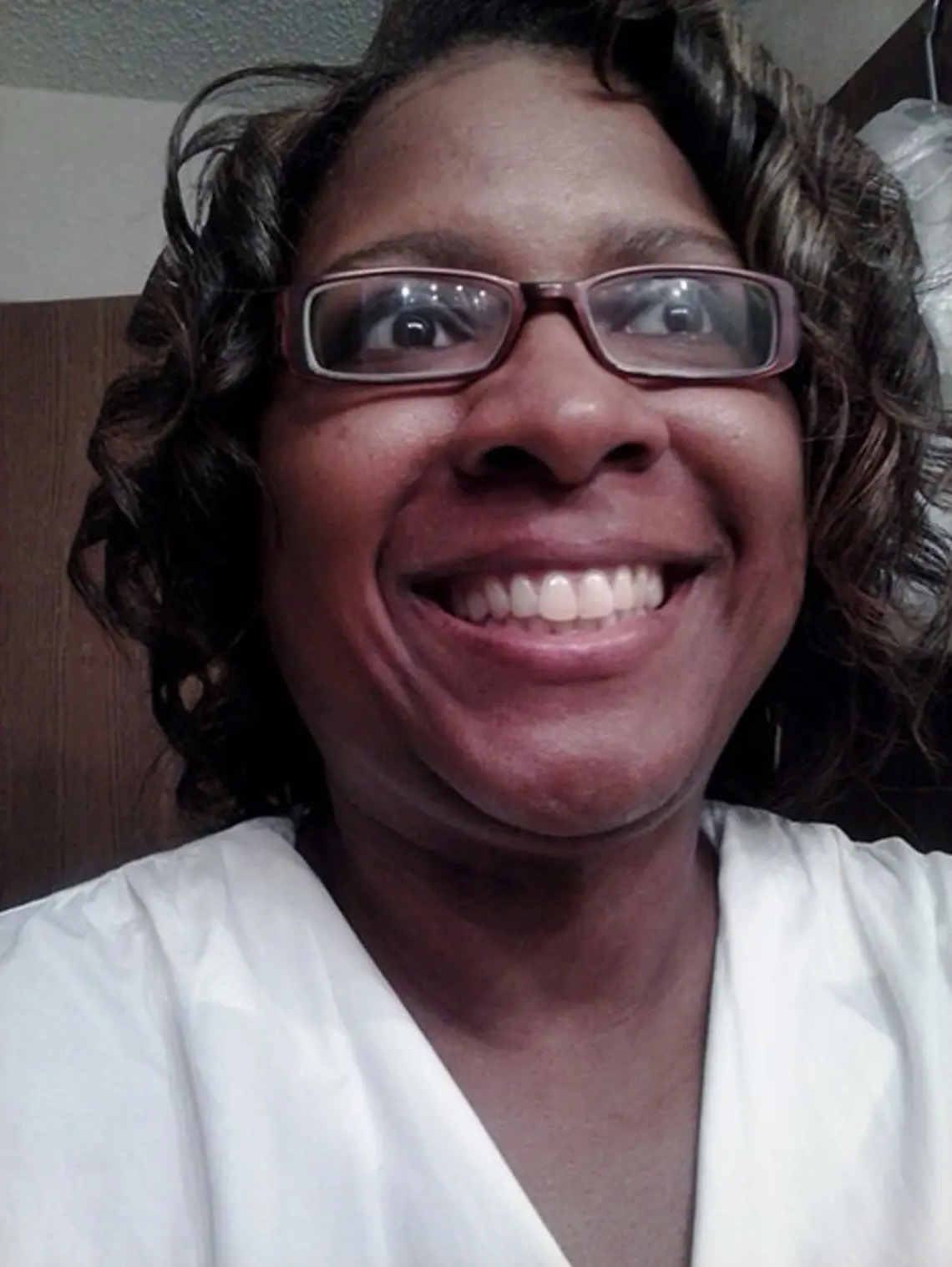
April McQueen ’93’s struggles with and recovery from mental illness forced her to revisit her expectations and professional goals. “I believe that it’s made me who I am today,” she says. “I’m living my truth.”
PAW Tracks is also available on iTunes — click here to subscribe
TRANSCRIPT
Brett Tomlinson: For this episode of PAW Tracks, we spoke with April McQueen ’93, a librarian in Atlanta, Ga., about what happens when life doesn’t go according to plan. It is a story about mental illness, recovery, and perseverance.
McQueen arrived at Princeton as a 16-year-old freshman in 1988. She credits her mother with encouraging her to make higher education a priority, and supporting her along the way.
April McQueen: She was really an anchor for me — best friend, cheerleader, all of that. And she is one of the reasons that I think I wound up at Princeton, because she always developed my language skills and my creativity, and my passion for learning, and my sense of humor too.
BT: In the summer after McQueen’s junior year, her mother died unexpectedly, and the absence of that anchor had an immediate effect.
AM: She died in August. And when I came back to school, it was very — it was just so different. The experience that led me to decide to take a year off is, I was living in an apartment with friends, and one of the friends was celebrating her 21st birthday, and her mother was planning a surprise party for her, with all of her friends and everything. And I thought, “That’s the kind of thing my mom would’ve done,” and it just knocked me for a loop. And I just — I felt like I wouldn’t be able to go on that year. I needed to take a year away.
BT: McQueen, a romance languages major, returned to finish her degree and in 1993 she began her first job after college.
AM: When I was working I went back to Cincinnati, where my father was living, and I worked at the Chesley law firm, on the breast implant litigation at the time, and they encouraged me to go to law school. And I felt, “Well, I need a secure career,” so I went to law school with the intent to practice law. But I never ended up practicing law, because while I was studying the Ohio Bar Examination, I was hospitalized for two weeks and diagnosed with a severe and persistent mental illness.
While I was studying for the bar examination, I had symptoms of paranoia from graduation all the way through until about the two weeks that I was hospitalized, which was two weeks before the actual exam. When I was hospitalized, I was misdiagnosed with bipolar disorder II with paranoid features, the one that tends toward depression, instead of schizophrenia.
At the time when it happened I was 25, it was just so devastating. It took at least a couple of years just to get from the point of being disheartened to having a comeback strategy. I had to change my expectations once I was diagnosed. I was heartbroken not to be sitting for the bar exam in Ohio and I basically — while I was in recovery, I was thinking, “I’ve got to be able to do something that uses my talents and my skill sets, even though I don’t think I’m going to be able to practice law” — because of the way that stress affects the diagnosis that I have.
So I basically had to just try job after job after job to see if that would work for me in terms of being something that I could actually do, being something that I could maintain, being something that I would enjoy, and not defining myself in terms of the things that I had for so many years, which was getting into Princeton, graduating from Princeton, getting into law school, graduating from law school.
I’ve worked as a janitor, a food-service worker, child caregiver, adult English as a Second Language instructor at a community college, social service worker, court-referred dispute mediator, then administrative law judge for a state administrative agency, and then a library paraprofessional, which is my current profession.
While I was at Princeton, I worked at the Firestone Library for all of the years that I was there, and I knew from Princeton that library work — I could handle that, and I would enjoy it. And when I was redefining my idea of personal success, I chose that.
My support structure has been a combination of professional support — people who are paid to help you — job coaches, counselors, doctors, nurses, that kind of thing. But most of all it’s been my family, because they’ve seen me through my best and worst, and especially my father. I think because he is a social worker — at least he was, before he retired — because he was a social worker he was more predisposed to be able to learn about the illness with me, and I think that’s what it really takes. It takes having people in your life. Those paid people are great — but having a family’s support that will be by you, because the relationships that one has, it can be very isolating and hard to maintain friendships, with all that goes on with a mental health diagnosis.
Even though I’ve had a lot of different professional and educational and social experiences, and a lot of time in mental health recovery, I believe that it’s made me who I am today. I use my talents and skillsets in many more diverse ways than if things had all gone as planned. And I don’t believe that everyone can look back and say that. So for me, right now, I’m living my truth. It feels like, if I had to go through all of that to get to where I am now, I would say, it’s weird, but it’s been worth it.
BT: McQueen says that she would like to see Princeton and its Ivy League peers offer students a course in how to deal with setbacks in mental health, drawing on the experiences of students and alumni who have dealt with similar situations.
Our thanks to April McQueen for sharing her story. Brett Tomlinson produced this episode. The music is licensed from FirstCom Music.
Paw in print

March 2026
Mascots across generations; biome breakthroughs; international students make new plans.


4 Responses
Charlene Brown ’92
8 Years AgoApril: I admire your...
April: I admire your openness about your experiences with mental illness. I didn't realize that you were going through such a difficult time when we were in school together and in the years following. I am deeply inspired by your journey to living your truth.
Harriet Patterson ’98
9 Years AgoThanks to the PAW for...
Thanks to the PAW for featuring such an important and powerful story. We need to shine a light on mental illness, especially in the Princeton community where it can sometimes feel that only "perfect" lives are valued or acceptable. Princetonians, like all people, struggle with mental illness, job loss, addiction, chronic illness, suicide, and all the other challenges that life brings. Talking about these things more openly may lead people to seek help earlier and can also help normalize the experiences of families when a loved one is facing these challenges.
For April: I am inspired by your determination to build a life of meaning and fulfillment, even when there have been difficult and unexpected twists and turns on your path that could have derailed others. I am also touched by your description of the support your family has provided and how transformational that has been for you.
Mental illness impacted my family as well growing up. Unfortunately, as was so often the case in the past, it was not talked about openly, which just served to add an additional layer of confusion and frustration to the already present shame and stigma.
I applaud your openness in sharing your experience so others can learn from you. The more we all understand about mental illness and the wide ranging experiences people may have, the better we can collectively support people to live their fullest, best lives.
Mary Azoy ’71
9 Years AgoI’m so very sorry to hear of...
I’m so very sorry to hear of your struggle, April. I also admire that you decided to speak out in this particular forum. I graduated in ‘71, and have been a mental health therapist for the past 20 years. Both my spouse (also a P’ton grad) and I have struggled with severe clinical depression, which intermittently derailed us both in our 20s, 30s and 40s. But good medical treatment, regular exercise, CBT, and other forms of self-care have kept us healthy and active in our respective careers for most of our adult lives. It’s so crucial for folks to reach out for help when they need it - and working to dispel the stigma around mental illness is the very first step toward doing that. Thank you so much for sharing your story - and I hope your life continues to be a meaningful and fulfilling one for you.
Tom Pyle ’76
8 Years AgoA Long, Winding Road
Bravo, April McQueen ’93 (“Changing Outlook,” PAW Tracks, posted online Feb. 3)! I applaud her openness and courage to discuss in public a serious matter normally ignored. Serious and persistent mental illness is no picnic. Indeed, it is a maelstrom, physically, emotionally, socially, financially. As April proves, recovery can be a long and winding road. As she attests, perhaps the most critical factor on the road to recovery is family support. More support is needed not only for loved ones beset by mental illness, but also for their families trying to navigate the maelstrom with them.
One more point: Support for Princeton-area individuals and families navigating the maelstrom of mental illness is available nearby. As a board member of the Princeton/Trenton affiliate of the National Alliance on Mental Illness (NAMI), I know personally of wonderful resources and networks that NAMI provides. I encourage any Princetonian with such issues, loved one or family member alike, to connect with NAMI Mercer (www.namimercer.org) for help, education, and support.